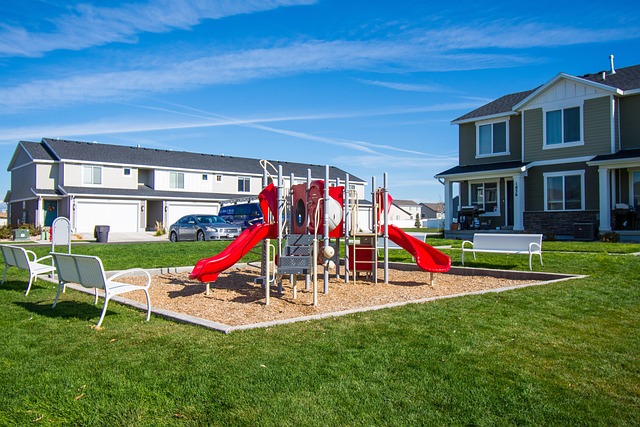Task automation is transforming real estate by freeing professionals from repetitive tasks, enabling them to focus on client interactions, market analysis, and strategic decision-making. Automated systems streamline data entry, property listings, and communication, enhancing efficiency and reducing errors. Agencies should strategically select user-friendly, scalable software integrating with existing systems to optimize processes like lease tracking and lead generation, ultimately boosting client satisfaction and business growth. Implementing automation requires a structured approach: evaluating current processes, prioritizing tasks for automation, providing training, fostering adaptability, regularly reviewing strategies, and refining based on user feedback.
In today’s competitive real estate market, leveraging software to automate tasks is no longer a luxury—it’s a necessity. This article guides you through the process of implementing automation solutions, from understanding the potential benefits for your agency to choosing the right tools and ensuring a seamless transition. Discover how efficient task management can elevate your operations, save time, and improve client satisfaction in the dynamic world of real estate.
Understanding Task Automation in Real Estate: Unlocking Efficiency

In the dynamic realm of real estate, task automation is transforming how professionals manage their operations. By leveraging software to automate repetitive and time-consuming tasks, agents can unlock significant efficiency gains. This shift empowers them to focus more on client interactions, market analysis, and strategic decision-making—core aspects that drive success in this competitive industry.
For instance, automated systems can streamline processes like data entry, property listings, and communication with clients. These technologies enable real estate professionals to save valuable time and reduce manual errors. As a result, they can deliver exceptional service, enhance client satisfaction, and ultimately close more deals. The digital revolution in real estate is not just about staying current; it’s about leveraging technology to stay ahead in an increasingly competitive market.
Choosing the Right Software for Your Agency's Automation Needs

When it comes to automating tasks in the real estate industry, selecting the right software is a strategic move for any agency. The market offers a wide array of options tailored to specific needs, from property management to sales and marketing. For instance, consider a comprehensive property management platform that automates routine tasks like lease tracking, maintenance requests, and rent collection, freeing up time for agents to focus on client interactions.
For real estate agencies, choosing software should be an informed decision based on current challenges and future goals. It’s essential to assess features like integration capabilities, user-friendliness, and scalability. A flexible, user-friendly platform that can adapt to the agency’s growing needs is ideal. Additionally, considering industry-specific tools for areas like automated lead generation or CRM (Customer Relationship Management) systems can significantly enhance efficiency and client engagement.
Implementing and Training: Strategies for Seamless Transition

Implementing software to automate tasks in real estate involves a strategic approach for a seamless transition. Start by assessing existing processes and identifying repetitive, time-consuming activities that can be automated. Prioritize tasks based on their impact on efficiency and productivity, focusing on those with high potential for simplification. Once identified, gradually introduce automation tools, ensuring they align with your team’s workflow. Provide comprehensive training to agents and staff, offering hands-on experience and clear guidance on using the new software effectively. Regularly collect feedback during the training phase to address any challenges promptly.
Encourage an adaptive mindset within your real estate operations, as automated systems may require adjustments in how tasks are handled. Foster open communication channels for ongoing support and troubleshooting. Leverage demo sessions and case studies of successful implementations in similar real estate businesses to build excitement and confidence among team members. Regularly review automation strategies, gathering insights from users to refine processes further and maximize the benefits of software adoption.






